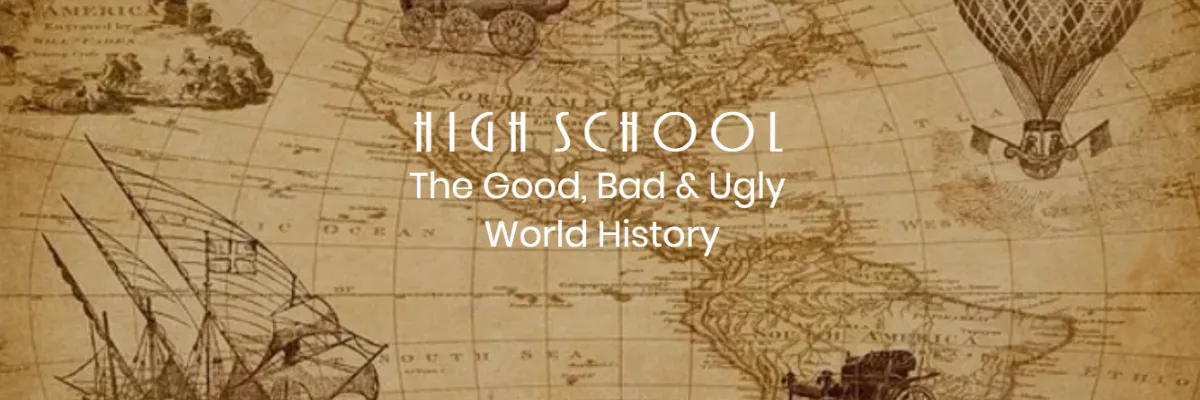
World History has the good, bad and ugly- what you choose to learn from it makes all the difference for your future!
ANCIENTS

Self-paced FLEX
Ages: 13-17
Cost: $120 total
10 week course
No set meeting time
First Week FREE
$59/ month- cancel anytime
Access to ANY of my FLEX courses in World History, Economics and Law
Homework Discussion via Email Included!
The histories of ancient civilizations aren't always the brightest and well painted pictures, but through this course study we learn to appreciate the paths they've paved for us today. A study of world history can best be appreciated when we connect our human story across the ages. This course is designed to cover large periods of our past in breadth and depth, focusing on learning about ancient civilizations, influential figures, world religions and pivotal wars that have influenced the development of ideas and ultimately improved the human experience.
In this 10 week FLEX course, the learner will move independently through a study of the Ancients at their own pace. Each week students are given a weekly reading assignment, video with multi-media presentation, discussion/ essay questions, and supplemental video/ article links for enrichment through the course syllabus. Students are encouraged to connect and apply what they are learning as they read the assigned articles/chapters, watch the lecture videos, engage in discussion questions with others and complete presentations to show understanding of the content.
No background knowledge is required. The bulk of weekly homework consists of reading about the ancient civilizations with an occasional preparation for themed narrations/ presentations- expect 0-1 hrs. of out of class time prep. Additional literature of historical fiction, classics and biographies are given as individual reading or family read aloud suggestions and supplemental activity ideas are included for your reference and use.
Week One: The Science Behind our History; Early Humans; Natural Selection and Survival of the Fittest; Fossil Records and Gaps; Paleolithic Man
Week Two: Natural Law vs. Laws of Man; The Rise of Civilizations and Culture: Mesopotamia, Egypt, Ancient Israel & Religious Beginnings of Judaism and Christianity
Week Three: Assyrian Empire; Israel Rebuilds; Persia Conquers; Herodotus- first historian; Indus Valley, Aryan and Mauryan Indian Civilizations; Beginnings of Hinduism and Buddhism
Week Four: Ancient Chinese Dynasties: Shang, Xhou, Qin and Han- Their Rise and Fall; Philosophies: Confucianism, Daoism, and Legalism; Terra Cotta Warriors; Chinese Inventions
Week Five: Minoan Culture; Mycenean Civilization; Rule of King Agamemnon; Development of Greek Language; Greek city-states: the polis; Athens, Sparta; Colonization; Beginnings of Democracy
Week Six: Greco-Persian War: Battles of Marathon, Thermopylae, Salamis; Athenian Empire and Daily Life; Delian League; Peloponnesian Wars; Mathematicians: Thales, Pythagoras, Archimedes; Philosophers: Socrates, Plato, Aristotle; Olympic Games; Greek Architecture
Week Seven: Alexander the Great’s Accomplishments/ Legacy; Gordian Knot; Fourth Wonder of the World: Pharos & Alexandria; Hellenistic Cultural Influences; Mathematics, Sciences, Architecture, Trade, Philosophy
Week Eight: Etruscans, Roman Republic; Roman Civil Law; Natural Law; Carthage; Hannibal; Punic Wars; First & Second Triumvirates, Roman Empire; Pax Romana
Week Nine: Roman Architecture: aqueducts, Pantheon, Coliseum; Breads and Circuses; Roman Family Life and Religion; Beginnings of Christianity; Jewish Revolt; Masada; Christian Persecution; Catacombs; Emperor Constantine
Week Ten: Hadrian’s Wall; Germanic Tribes, Visigoths and Vandals Invade; Western Rome Falls; Diocletian; Constantine; Byzantine Empire; Roman Contributions
Middle Ages
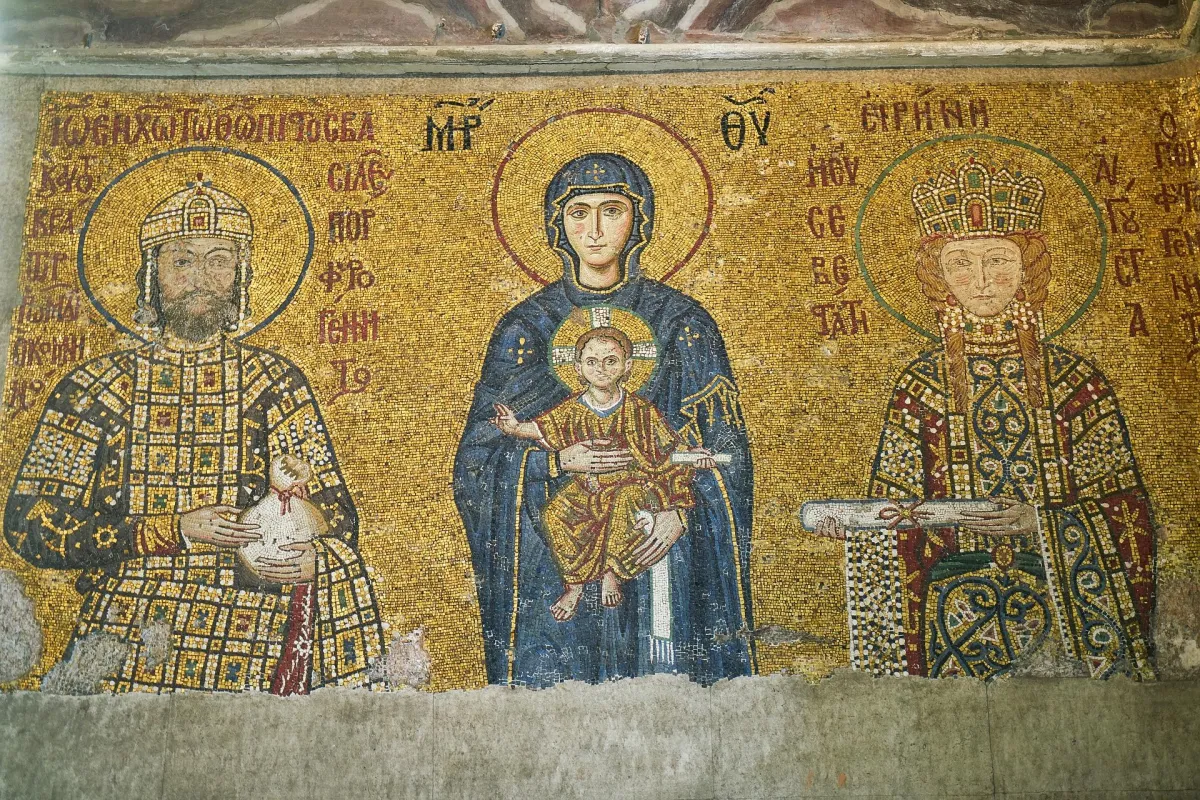
Self-paced FLEX
Ages: 13-17
Cost: $120 total
10 week course
No set meeting time
First Week FREE
$59/ month- cancel anytime
Access to ANY of my FLEX courses in World History, Economics and Law
Homework Discussion via Email Included!
This course is designed to cover large periods of our past in breadth and depth, focusing on learning about the Middle Ages: influential figures, world religions and pivotal wars that have influenced the development of ideas and ultimately improved the human experience. A study of world history can best be appreciated when we connect our human story across the ages. Discover important figures, world religions and pivotal wars that have influenced the development of ideas and ultimately improved the human experience, emphasizing the Byzantine Empire & European Kingdoms during Middle Ages, world religions, the Asian World, African & American early civilizations. We will be discussing the continued development of ideas and improvements of the human experience- including cultural literacy relative to this time frame.
In this 10 week FLEX course, the learner will move independently through their study of the Middle Ages- there will be no set time for meeting. Each week students are given a weekly reading assignment, video with multi-media presentation, discussion/ essay questions, and supplemental video/ article links for enrichment through the course syllabus. Students are encouraged to connect and apply what they are learning as they read the assigned articles/chapters, watch the lecture videos, engage in discussion questions with others and complete presentations to show understanding of the content.
No background knowledge is required. The bulk of weekly homework consists of reading about the Middle Ages with an occasional preparation for themed narrations/ presentations- expect 0-1 hrs. of out of class time prep. Additional literature of historical fiction, classics and biographies are given as individual reading or family read aloud suggestions and supplemental activity ideas are included for your reference and use.
Topics of weekly discussion-
Week One: Arabic contributions to Mathematics, Abraham, Muhammed, Koran, Muslim faith, Shari’ah law, Islamic Empire, Umayyad Dynasty, Charles Martel, Significance of Battle of Tours, Abbasids, Crusades, Saladin, Mongol Invasion
Week Two: Islamic Empire: Trade; Social Structure; Continued Science, Mathematics, Poetry & History Advances; Art & Architecture; Muslim Call to Prayer; Local vs. World Religions
Week Three: African Geography & Climate; Egypt, Kush, Axum, Ghana, Mali, Songhai, Bantu, Swahili Settlements: Husuni Kubwa palace, Ibn Battuta, Early African Culture: Art, Religion, Music
Week Four: Sui, Tang, Song & Yuan Dynasties; meritocracy; Genghis & Kublai Khan, Marco Polo, Silk Road, Spice Route; Golden Age of China; Early Japan Culture; samurai, daimyo, shogun rule; Early Korea
Week Five: Theravada & Mahayana Buddhism; Sultanate of Delhi; raj puts; Malay Peninsula; Angkor Wat; Indonesian Archipelago
Week Six: Clovis, Roman Catholic Church, Christian Monasticism, Charlemagne, Vikings, Feudalism, Code of Chivalry, Aristocracy, Battle of Hastings, Bayeux Tapestry, Haley’s Comet, Early Russian Culture
Week Seven: Holy Roman Empire, Justinian Code of Law, Byzantine Empire, Hagia Sophia, Seljuk Turks, Crusades: People’s, 1-4th, and Children’s; Saladin, Manor System; Bourgeoisie, Guilds
Week Eight: Papal Supremacy, Lay-investiture; Monastic Orders: Cistercians, Dominicans, Franciscans; Scholasticism/ Universities; Cathedrals: basilica, romanesque, gothic architecture; Notre Dame, York Minster; Bubonic Plague; Anti-semetism; The Great Schism; 100 Years War, Joan of Arc
Week Nine: Ancient American Peoples: Inuit, Eastern Woodlands, Moundbuilders, Pueblo; Mesoamerica: Olmec, Mayan, Aztec; Inca: Machu Picchu, quipu; Spanish Conquistadors: Cortes, Pizarro
Week Ten: Final Presentations and Kahoot Review
Early Modern Times
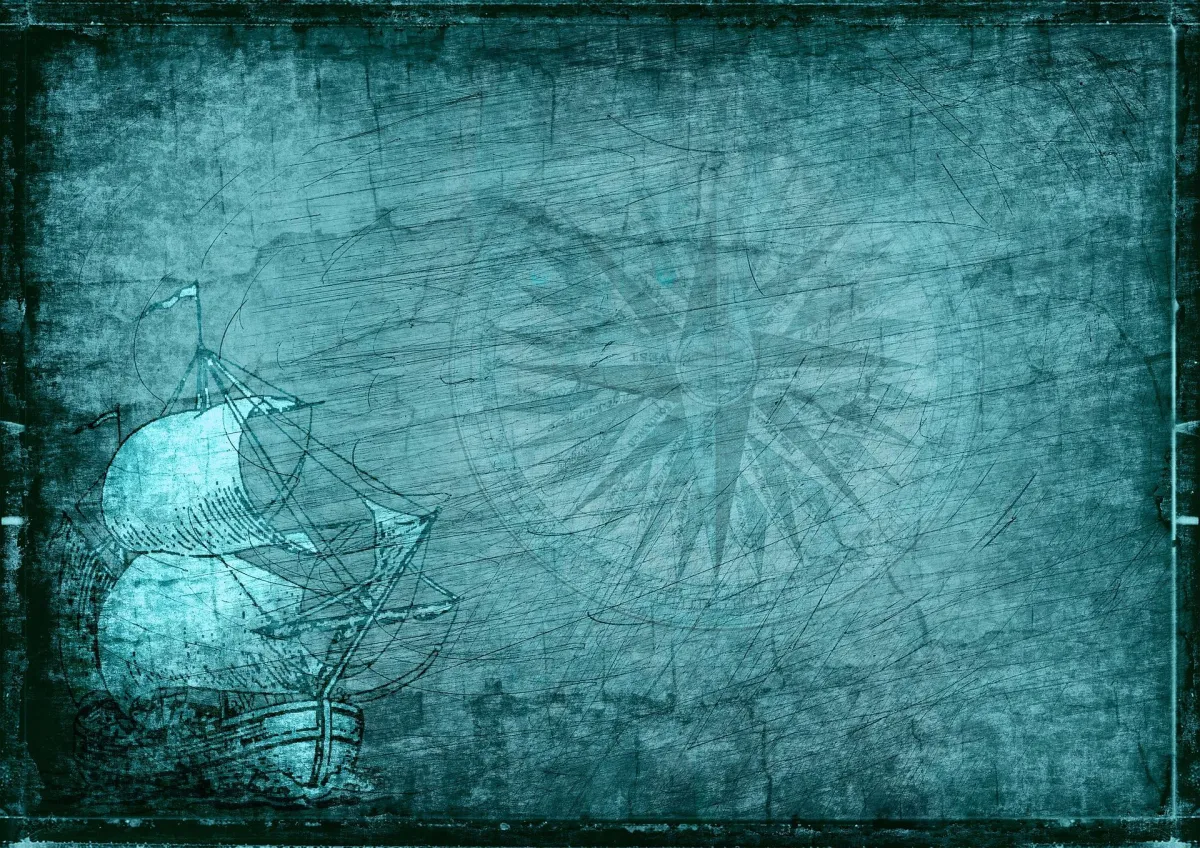
Self-paced FLEX
Ages: 13-17
Cost: $120 total
10 week course
No set meeting time
First Week FREE
$59/ month- cancel anytime
Access to ANY of my FLEX courses in World History, Economics and Law
Homework Discussion via Email Included!
A study of world history can best be appreciated when we connect our human story across the ages. Discover important figures, world religions, pivotal explorations and wars that have influenced the development of ideas and ultimately improved the human experience, emphasizing New World Exploration, the European Renaissance, Reformation, Scientific Advances & Enlightenment, the Asian World, Ottoman Empire, Early Modern Asia, concluding with the American and French Revolutions. We will be discussing the continued development of ideas and improvements of the human experience- including cultural literacy relative to this time frame.
In this 10 week FLEX course, the learner will move independently through a study of the Early Modern Times at their own pace. Each week students are given a weekly reading assignment, video with multi-media presentation, discussion/ essay questions, and supplemental video/ article links for enrichment through the course syllabus. Students are encouraged to connect and apply what they are learning as they read the assigned articles/chapters, watch the lecture videos, engage in discussion questions with others and complete presentations to show understanding of the content.
No background knowledge is required. The bulk of weekly homework consists of reading about the Middle Ages with an occasional preparation for themed narrations/ presentations- expect 0-1 hrs. of out of class time prep. Additional literature of historical fiction, classics and biographies are given as individual reading or family read aloud suggestions and supplemental activity ideas are included for your reference and use.
Topics of weekly discussion-
Week One: Gutenberg Press, Vernacular Literature; Renaissance Trade & Capitalism in Milan, Venice, Florence; Humanist Education & Liberal Arts; Medieval vs. Renaissance Artists- Leonardo DaVinci, Michelangelo, Raphael, Brunelleschi; Renaissance Works: Sistine Chapel, Mona Lisa, Madonna and Child, Saint Michael Vanquishing Satan, Last Supper, Pieta, David
Week Two: Martin Luther: Ninety-five Theses, Lutheranism; John Calvin: Calvinism, Anabaptists, Henry VIII, Bloody Mary, Church of England, William Tindale, John Wycliffe, Catholic Reformation: Council of Trent
Week Three: New World Explorations: Portugal, Spain, France, England, Denmark; Treaty of Tordesillas- Line of Demarcation; Astrolabe; Triangle of Trade; Middle Passage; Consequences of Slave Trade in Africa; Dutch East India Company; SE Asia Kingships
Week Four: French Huguenots; King Phillip II of Spain; Queen Elizabeth I of England; 1588- Spanish Armada, 30 Years War, Germany; Oliver Cromwell, English Bill of Rights; King Louis XIV of France, Absolutism, Palace of Versailles; Russia Czars: Ivan the Terrible, Peter the Great; Mannerism/ Baroque Art; Globe Theater, Shakespeare; Cervantes; Political Theorists- Hobbs, Locke
Week Five: Gunpowder Empires; Ottoman, Janissaries; Sunni Muslims, Sultans; Safavid: Topkapi Palace, Shahs, Shiite Muslims, Sulieman the Magnificent; Mogul: Babur, Akbar, Taj Mahal, British East India Company
Week Six: Ming Dynasty: Naval Voyages, Imperial City; Qing Dynasties: Manchu, Martial Arts; Foot binding; Japanese Tokugawa
Era: Hostage System, Kabuki Theater; Korea: Hermit Kingdom
Week Seven: Geocentric vs. Heliocentric Theory, Orrery; Age of Enlightenment: (Sciences) Ptolemy, Copernicus, Kepler, Galileo, Bacon, Newton, Lavoisier; (Philosophy) Descartes, Locke, Voltaire, Diderot, Cavendish, Winkelmann, Wollstonecraft; (Government) Montesquieu, Smith, Rousseau; (Anatomy) Vesalius, Harvey, Boyle; (Music) Handel, Haydn, Bach, Mozart; Laissez-faire, Philosophes, Salons, Enlightened Absolutism; Seven Year War/ French- Indian War; Treaty of Paris 1763
Week Eight: Latin America: Spanish Missions; American Revolution: “No taxation without representation”, Intolerable & Stamp Acts, ‘shot heard round the world’, Declaration of Independence, Treaty of Paris 1783, Articles of Confederation, Constitution, Bill of Rights; British Imperialism
Week Nine: French Social Structure; Bourgeoisie, Taille; Revolution: ‘Let them eat cake’, Marie Antionette; Storming the Bastille, Tennis Court Oath; The Declaration of the Rights of Man and the Citizen, Reign of Terror, Robespierre, Committee of Public Safety;
Week Ten: Napoleon: coup de’etat, Napoleonic Law Code; Isle of Elba, Battle of Waterloo, Arc de’ Triumph; FINAL PRESENTATIONS
European Imperialism
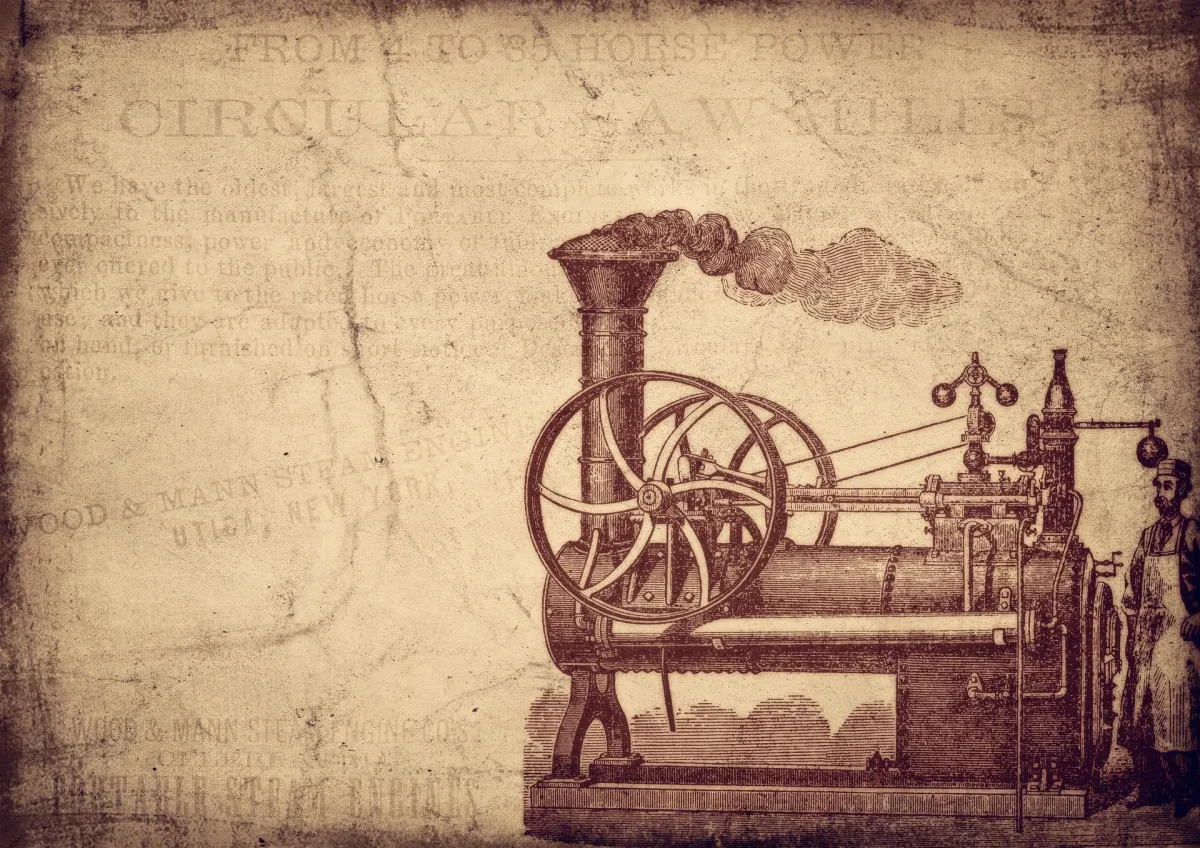
Self-paced FLEX
Ages: 13-17
Cost: $84 total
7 week course
No set meeting time
First Week FREE
$59/ month- cancel anytime
Access to ANY of my FLEX courses in World History, Economics and Law
Homework Discussion via Email Included!
A study of world history can best be appreciated when we connect our human story across the ages. Discover the political ideologies, industrial advances, pivotal alliances and wars, as well as important inventors, artists, scientists & revolutionaries that have influenced the development of ideas and ultimately improved the human experience, emphasizing Industrial Revolution and Prosperity, Romanticism and Realism, Emergence of Democracy and the Nation State, Colonial and British Rule in SE Asia/ Africa, Height of Imperialism, Chinese Revolution and Rise of Modern Japan from 1800~ 1910.
In this 7 week FLEX course, the learner will move independently through a study of European Imperialism at their own pace. Each week students are given a weekly reading assignment, video with multi-media presentation, discussion/ essay questions, and supplemental video/ article links for enrichment through the course syllabus. Students are encouraged to connect and apply what they are learning as they read the assigned articles/chapters, watch the lecture videos, engage in discussion questions with others and complete presentations to show understanding of the content.
No background knowledge is required. The bulk of weekly homework consists of reading about the European Imperialism with an occasional preparation for themed narrations/ presentations- expect 0-1 hrs. of out of class time prep. Additional literature of historical fiction, classics and biographies are given as individual reading or family read aloud suggestions and supplemental activity ideas are included for your reference and use.
Topics of weekly discussion-
Week One: Industrial Revolution: Spinning Jenny, Steam Engine: James Watt, Cottage & Textile Industries, Puddling, Railway & Iron Development; Industrial Middle Class; Utopian Socialism; Karl Marx; Congress of Vienna: Conservatism, Liberalism, Nationalism; French 2nd Republic
Week Two: Crimea War, Concert of Europe, 19th Century Social and Political Reforms: Italian and German Unification; Franco-Prussian War; Austria’s Dual Monarchy; Male Suffrage; Victorian England; Emancipation Proclamation, Dominion of Canada; Romanticism Ideology, Organic Evolution & Natural Selection; Realism
Week Three: Second Industrial Revolution, Communist Manifesto: Karl Marx, Friedrich Engels; Socialist Ideology- Intent vs. Reality, Trade Unions; Urbanization, New Middle Classes; Florence Nightingale, Red Cross: Clara Barton, Women’s Suffrage, Public Education; Duma, Ministerial Responsibility; Triple Alliance vs. Triple Entente
Week Four: Marie Curie: Nuclear Energy & Atoms, Albert Einstein: Theory of Relativity; Psychoanalysis: Sigmund Freud; Antisemitism, Pogroms, Zionism; Modernism Movement- Impressionism: Monet, Renoir, Van Gogh, Picasso; Imperialism- SE Asia & Africa: Berlin Conference, Direct & Indirect Rule, ‘White-man’s Burden’ vs. Social Darwinism, David Livingston and Henry Stanley, Suez Canal, Malaria & Quinine, Boers, African Nationalism
Week Five: British India: Sepoy Mutiny, Viceroy, Mohandas Ghandi; Latin American Revolutions: Toussaint L’Ouverture, Miguel Hidalgo, Cry of Delores; Simon Bolivar, Jose San Martin, Peninsulares, Creoles, Mestizos, Caudillos; Remember the Alamo, Mexico- American War; Monroe Doctrine, Panama Canal
Week Six: Qing Dynasty: Opium War; Tai Ping Rebellion, Extraterritoriality, Self-Strengthening, European Spheres of Influence, Empress Dowager Ci Xi, Open Door Policy, Boxer Rebellion, Indemnity, Sun Yat-sen, Nationalist Party
Week Seven: Japan: Fall of Tokugawa Shogunate, Treaty of Kanagawa Prefectures, Meiji Reforms, Imperialism, FINAL PRESENTATIONS
Twentieth Century
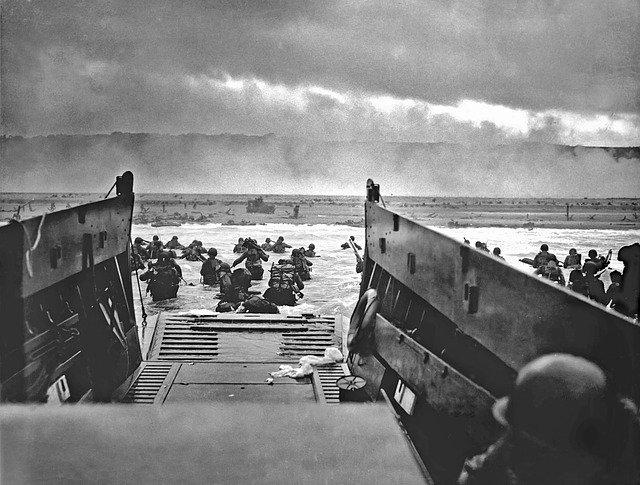
$150/ pp semester
Ages: 13-17
Wed, 10:30-11:30 PM
Self-paced FLEX
Ages: 13-17
Cost: $96 total
8 week course
No set meeting time
First Week FREE
$59/ month- cancel anytime
Access to all FLEX courses in World History, Economics and Law
Homework Discussion via Email Included!
Twentieth Century I
Semester Live In Person
Class Description: World History has the good, bad and ugly- what you choose to learn from it makes all the difference for your future! Join me as we learn in our early Twentieth Century study of "...things which have been- things which are at home, things which are abroad; the wars and the perplexities of the nation... and a knowledge also of countries and of kingdoms." (DC 88)
Discover the political ideologies, industrial advances, patterns of economy, pivotal alliances and wars, as well as important leaders & revolutionaries that have influenced the development of ideas and ultimately improved the human experience, emphasizing the Modern Age, from 1900-1945. In this 13-week class, we will discuss the developing global interactions and implications/ improvements of the human experience from a Judeo-Christian worldview- including cultural literacy relative to this time frame: World War I, Russian and Chinese Revolutions, World War II: New Order, Holocaust, Cold War Beginnings, Contemporary Western World, and Nationalism in the Middle East, Latin America, Africa, Asia & the Pacific.
Please note that we discuss the social injustice of racism and discrimination in this study of Twentieth Century World History as it continues to be a part of our human story. From military dictators and monarchies to republics, each form of government can create or prevent legislation for social equality- those whom are elected into public office should reflect private as well as public virtue. With the creation of the US Constitution and subsequent republics formed around the world, we have seen HUGE leaps of progress in creating social equality for all- in quoting the words of John Locke- "Where-ever the law ends, tyranny begins." The social contract between government and man continues to be developed and improved where laws can be passed which sustain an economically stable environment to provide equal opportunity for all regardless of nationality, ethnicity or culture.
Homework: Students are encouraged to connect and apply what they are learning by engaging in discussion, reflecting on supplemental video content, completing weekly homework assignments, including narrations, two colloquia book discussions and two required presentations to show understanding of subject matter. The bulk of weekly homework consists of reading about the Twentieth Century, completing the Review Questions and an occasional preparation for themed narrations/ presentations and colloquia discussion. Expect 1-2 hrs. of out of class time prep per week.
Required Texts (provided): Ebook Glencoe World History by Jackson J. Spielvogel, Ph.D. ISBN 9780078745256
Hardcopies available used apx $15-20
Colloquia Discussion: Individual Life Studies (not provided):
Studying the life and works of notable individuals through biographies and memoirs provides valuable lessons in life. Every life serves a purpose, and discovering your own purpose can be aided by delving into the lives of others whose purposes have made our lives better or worse. Students will choose two books/ influential figures from the list below and come prepared to share a short narration about the book as well as discussion worthy ‘epiphany’ quote, question and insight. Epiphany- "an illuminating discovery, realization, or disclosure or a revealing scene or moment." God often uses such moments of illumination to bring people to the knowledge of Himself. This illumination, or epiphany, is one of the central aspects of Christianity, for without God's intervention, none of us would see the truth.
First Colloquia: Choose one story/ influential figure you aren’t familiar with-
Man’s Search for Meaning (Viktor Frankl), Hiding Place (Corrie Ten Boom) OR Dietrich Bonheoffer: In the Midst of Wickedness (Benge)
Second Colloquia: Choose one story/ influential figure you aren’t familiar with-
Unbroken (Hillenbrand), Boys on the Boat (Brown) *young adult adaptations OR Gladys Aylward (Benge)
Additional literature of historical fiction, classics and biographies are given as individual reading or family read aloud suggestions which can provide a better understanding of this Modern Age experienced firsthand.
Week One: The Titanic; Triple Alliance vs. Triple Entente; WWI: Beginnings, Archduke Franz Ferdinand, Austria-Hungary vs. Serbia, Allies vs. Central Powers, Trench Warfare, RMS Lusitania, Zimmerman Telegram
Week Two: Spanish Flu Epidemic, End of WW1: ‘Never let a good crisis go to waste’, Purposes of Propaganda, Armistice, Woodrow Wilson, Paris Peace Conference, League of Nations, Treaty of Versailles, Fall of Ottoman Empire
Week Three: Russian Revolutions: Romanovs-Republic-Communism, “Peace and Bread”, Bolsheviks, Avant-garde, Vladimir Lenin, Red vs. White Army
Week Four: Roaring 20s to Depression, Spirit of St. Louis- Charles Lindbergh; Women’s Suffrage; Treaty of Versailles, Weimar Republic: Deutschmark, Runaway Inflation; Andrew Carnegie: Philanthropy; Investment; Great Depression: Stock Market Crash 1929, Dust Bowl, FDR’s New Deal, Keynesian vs. Austrian Economics
Week Five: Totalitarianism: Italian Fascist Party, Mussolini; Russia: Lenin’s New Economic Policy, Stalin, Collectivization, Holodomor, Solzhenitsyn; Germany: Adolf Hitler, Mein Kompf, Nazi Party, Reichstag, Enabling Act, Kristallnacht, 1930s- Third Reich, Aryan Race, Fascist/ Nazi Propaganda, Secret Service ‘SS’, Rome-Berlin Axis, Nazi-Soviet Nonaggression Pact
Week Six: WW2 Pacific: Second Sino-Japanese War, Asian New Order, Pearl Harbor, Kamikaze, Midway, Western Front: Blitzkrieg, Winston Churchill, Dunkirk, Valkyrie, D-Day, Normandy; Nuremburg Laws; Underground Resistance
Week Seven: WW2 Germany: New Order, Final Solution, Holocaust, Aryan Race, Ghettos, Concentration Camp, Auschwitz, Anne Frank; Japan: Labor & Internment Camps; Manhattan Project: Albert Einstein, Atomic Bomb, Los Alamos, Oppenheimer, ‘Little Man’ & ‘Fat Boy’, Hiroshima, Nagasaki; The Big Three, Iron Curtain, United Nations
Week Eight: Colloquia Discussion on Man’s Search for Meaning (Viktor Frankl) OR Dietrich Bonheoffer: In the Midst of Wickedness (Benge) OR The Hiding Place (Ten Boom); Epiphany Presentations & Memorial Gallery Walk
Week Nine: Fall of Ottoman Empire: Armenian Genocide, Palestine: Balfour Declaration, Zionism, Jewish State
Week Ten: India: Mohandas Gandhi, Salt March; Africa: Education Breeds Independence; Japan: Rise of Military State; Latin America: Oligarchy, Good Neighbor Policy
Week Eleven: China: Communist International, National and Communism Parties, Mao Zedong, Chiang Kai-shek; Japan: Militarized Executive Branch & Expansion
Week Twelve: Colloquia Discussion & Epiphany Presentations- Unbroken (Hillenbrand) OR Boys on the Boat (Brown) *young adult adaptations OR Gladys Aylward (Benge)
Week Thirteen: Final Presentations & Kahoot Review!
Twentieth Century II
Semester Live In Person
Class Description: World History has the good, bad and ugly- what you choose to learn from it makes all the difference for your future! Join me as we study "...things which have been- things which are at home, things which are abroad; the wars and the perplexities of the nation... and a knowledge also of countries and of kingdoms." (DC 88)
Discover the political ideologies, industrial advances, pivotal alliances and wars, as well as important inventors, artists, scientists & revolutionaries that have influenced the development of ideas and ultimately improved the human experience, emphasizing1945- Modern Day.
In this 13-week class, we will discuss the developing global interactions and implications/ improvements of the human experience in a Judeo-Christian worldview- including cultural literacy relative to this time frame: Cold War and Post War Changes, the Contemporary Western World, Latin America, Africa and the Middle East, Asia and the Pacific, and Changing Global Patterns.
Please note that we discuss the social injustice of racism and discrimination in this study of Twentieth Century World History as it continues to be a part of our human story. From monarchies to republics- those whom are our government officials should reflect private as well as public virtue. With the creation of the US Constitution and subsequent republics formed around the world, we have seen HUGE leaps of progress in creating equality in law for all- in quoting the words of John Locke- "Where-ever the law ends, tyranny begins." The social contract between government and man continues to be developed and improved where laws can be passed which sustain an economically stable environment to provide opportunity for all regardless of nationality, ethnicity or culture.
Homework: Students are encouraged to connect and apply what they are learning by engaging in discussion, reflecting on supplemental video content, completing weekly homework assignments, including narrations and two required presentations to show understanding of subject matter. The bulk of weekly homework consists of preparing for the discussion about 1945- Modern Day, completing the review questions and an occasional preparation for themed narrations/ presentations- expect 1-2 hrs. of out of class time prep per week. I will be asking students to prepare 2-3 min narrations and current event presentations weekly.
Required Texts: Ebook (provided) Glencoe World History by Jackson J. Spielvogel, Ph.D. ISBN 9780078745256 (hardback to purchase- ISBN 9780078785849)
Colloquia Discussion: Individual Life Studies (not provided) Studying the life and works of notable individuals through biographies and memoirs provides valuable lessons in life. Every life serves a purpose, and discovering your own purpose can be aided by delving into the lives of others whose purposes have made our lives better or worse. Students will choose two books/ influential figures from the list below and come prepared to share a short narration about the book as well as discussion worthy ‘epiphany’ quote, question and insight. Epiphany- "an illuminating discovery, realization, or disclosure or a revealing scene or moment." God often uses such moments of illumination to bring people to the knowledge of Himself. This illumination, or epiphany, is one of the central aspects of Christianity, for without God's intervention, none of us would see the truth. Colloquia Reading (not provided): (or propose another biography/ memoir)
First Colloquia: Choose one story/ influential figure you aren’t familiar with- Red Scarf Girl (Jiang), A Long Way Home (Brierley) & To Destroy You is No Loss (Criddle)
Second Colloquia: Choose one story/ influential figure you aren’t familiar with- Long Walk to Water (Park), Kisses for Katie (Davis) & Running for My Life (Lomong)
Additional literature (AR) of historical fiction, classics and biographies are given as individual reading or family read aloud suggestions which can provide a better understanding of this Modern Age experienced firsthand.
Week One- Anglo-American Saeculum, Turnings, Generation: Boomers, Gen X, Millennials, Gen Y, Archetypes: Prophet, Nomad, Hero, Artist; Thinking Like a Historian: Storyteller, Scientist, Lawyer
Week Two- Capitalism vs. Communism: Iron Curtain, Propaganda, Truman Doctrine, Marshall Plan, Policy of Containment, Korean War, East and West Germany, Berlin Airlift & Wall, NATO vs. Warsaw Pact; The Arms Race: Space Race, Sputnik, Apollo 11
Week Three- USSR: Khrushchev, De-Stalinization, Solzhenitsyn; Britain’s Welfare State; European Economic Community (EEC); Keynesian vs. Austrian Schools of Economics; Scandinavian Socialism: Democratic Socialism vs. Social Democracy
Week Four- Cold War: Cuban Missile Crisis, Day of Pigs; Vietnam War: Domino Theory, Vietcong, POW/ MIA, Anti-War Sentiment, Memorial; Red Scare, Alger Hiss, Joseph McCarthy, Jim Crow Laws, Martin Luther King, Jr; John F. Kennedy/ JFK
Week Five- USSR: Expansion, Détente, Premier, KGB, Dissident, Mikhail Gorbachev, Perestroika & Glasnost, US President Ronald Reagan, Peace Through Strength; Chernobyl; Economic Challenges, Organized Crime; Eastern Europe Paths to Independence: Germany, Fall of Berlin Wall; Balkans- Ethnic Cleansing, Genocide, Croatia, Serbia, Bosnia; Romania, War with Ukraine
Week Six- European Union, Brexit; Keynesian vs. Austrian Schools Economics: Liberal vs. Conservative Policies; Thatcherism; Watergate, Nixon, Reagan, Clinton, NAFTA; Women’s Liberation Movement; Terrorism, 9/11; Science & Technology: Pros/ Cons- Environmental Damage, GMOs. Christian Revival; Pop Culture/ Art- Abstractionism, Postmodernism, Olympics
Week Seven- First Colloquia Discussion Epiphany Presentations
Week Eight- Latin American Economics, Population Growth, US Involvement; Cuba: Batista, Fidel Castro, Ché Guevara, Bay of Pigs; Panama Canal; Argentina: Juan Peron, Evita, Falkland Islands; Chilean Oligarchy, Military Coup; Columbian Drug Cartel
Week Nine- Algeria, Rwanda, Ghana, South Africa: Apartheid, Nelson Mandela; Pan-Africanism; Egypt, OPEC, Zionism, Israel: Jerusalem, Palestine, PLO, Six Day War 1967, Suez Canal War, Pan-Arabism, Yasir Arafat, Intifada; Iran: Shiite; Iraq: Sunni, Saddam Hussein, Kuwait, Persian Gulf War; Afghanistan: Taliban, Osama bin Laden; Islamic Militancy & Women’s Roles
Week Ten- China, Communist Party, Mao Zedong, People’s Revolution, People’s Republic of China, Great Leap Forward, Cultural Revolution, Little Red Book, The Four Olds, Deng Xiaoping, Tiananmen Square, Tank Man, Hong Kong; India; Pakistan: Bangladesh; Vietnam War: Vietcong, Cambodia: Pol Pot, Khmer Rouge; Japanese Miracle; Four Asian Tigers: Singapore, Hong Kong, Taiwan, South Korea; Lands Down Under
Week Eleven- Global Progress vs. Environmental Impact, Ecology, Developing vs. Industrialized Nations; United Nations: Security Council, UNESCO- United Nations Educational, Scientific, and Cultural Organization, UNICEF- United Nations International Children’s Emergency Fund, UNESCO World Heritage Sites, Book of Daniel- Biblical Prophecy
Week Twelve- Second Colloquia Discussion Epiphany Presentations
Week Thirteen- Final Presentations & Kahoot Review
Self-paced FLEX
A study of world history can best be appreciated when we connect our human story across the ages. Discover the political ideologies, industrial advances, pivotal alliances and wars, as well as important inventors, artists, scientists & revolutionaries that have influenced the development of ideas and ultimately improved the human experience. Emphasizing 1914-1945: World War I, Russian and Chinese Revolutions, Nationalism in Middle East, Latin America, Africa & Asia, World War II, the New Order & Holocaust. We will be discussing the developing global interactions and the implications/ improvements of the human experience- including cultural literacy relative to this time frame.
In this 8 week FLEX course, the learner will move independently through the class at their own pace. Each week students are given a weekly reading assignment, video with multi-media presentation, discussion/ essay questions, and supplemental video/ article links for enrichment through the course syllabus. Students are encouraged to connect and apply what they are learning as they read the assigned articles/chapters, watch the lecture videos, engage in discussion questions with others and complete presentations to show understanding of the content.
No background knowledge is required. The bulk of weekly homework consists of reading about the Early Twentieth Century with an occasional preparation for themed narrations/ presentations- expect 0-1 hrs. of out of class time prep. Additional literature of historical fiction, classics and biographies are given as individual reading or family read aloud suggestions and supplemental activity ideas are included for your reference and use.
Topics of weekly discussion-
Week One: The Titanic; Triple Alliance vs. Triple Entente; WWI: Beginnings, Archduke Franz Ferdinand, Austria-Hungary vs. Serbia, Allies vs. Central Powers, Battle of Somme, Trench Warfare, RMS Lusitania, Zimmerman Telegram, ‘Never let a good crisis go to waste’, Propaganda
Week Two: Russian Revolution: Romanovs, “Peace and Bread” Bolsheviks, Avant-garde, Vladimir Lenin, Red vs. White Army, Communism; WWI: Armistice, Woodrow Wilson, Paris Peace Conference, League of Nations, Treaty of Versailles, Fall of Ottoman Empire: Mandate System
Week Three: Treaty of Versailles, Weimar Republic: Deutschmark, Runaway Inflation; Andrew Carnegie: Philanthrope; Investment; Great Depression: Stock Market Crash 1929, French New Deal, FDR’s New Deal, Keynesian Economics; Spanish Flu Epidemic; Spirit of St. Louis- Charles Lindbergh; Women’s Suffrage
Week Four: Totalitarianism: Italian Fascist Party, Mussolini; Russia: Lenin’s New Economic Policy, Stalin, Collectivization; Germany: Adolf Hitler, Mein Kompf, Nazi Party, Reichstag, Enabling Act, Kristallnacht, Nuremburg Laws
Week Five: Fall of Ottoman Empire: Armenian Genocide, Palestine: Balfour Declaration, Zionism, Jewish State; India: Mohandas Gandhi, Salt March; Africa: Education Breeds Independence; Japan: Rise of Military State; China: Communist International, National and Communism Parties, Mao Zedong, Chiang Kai-shek; Latin America: Oligarchy, Good Neighbor
Week Six: 1930s- Third Reich, Aryan Race, Fascist/ Nazi Propaganda, Secret Service ‘SS’, Rome-Berlin Axis, Anti-Comintern Pact, Nazi-Soviet Nonaggression Pact; World War Two- Pacific: Second Sino-Japanese War, Asian New Order, Pearl Harbor, Midway, Western Front:, Blitzkrieg, Winston Churchill, Dunkirk, Valkyrie, D-Day, Normandy
Week Seven: WW2 Germany: New Order, Final Solution, Holocaust, Aryan Race, Ghettos, Concentration Camp, Auschwitz, Anne Frank, Underground; Japan: Labor & Internment Camps, Kamikaze; Manhattan Project: Albert Einstein, Atomic Bomb, Los Alamos, Oppenheimer, ‘Little Man’ & ‘Fat Boy’, Hiroshima, Nagasaki; The Big Three, Iron Curtain, United Nations
Week Eight: Final Presentations and Discussion
Global Civilizations: 1945 to Today

Self-paced FLEX
Ages: 13-17
Cost: $96 total
8 week course
No set meeting time
First Week FREE
$59/ month- cancel anytime
Access to all FLEX courses in World History, Economics and Law
Homework Discussion via Email Included!
A study of world history can best be appreciated when we connect our human story across the ages. Discover the political ideologies, industrial advances, pivotal alliances and wars, as well as important statesmen, artists, scientists & revolutionaries that have influenced the development of ideas and ultimately improved the human experience from 1945- 2000. Emphasizing Cold War and Post War Changes, the Contemporary Western World, Latin America, Africa and the Middle East, Asia and the Pacific, and Changing Global Patterns. We will be discussing the continued development of ideas and improvements of the human experience- including cultural literacy relative to this time frame. Additional reading/ literature is included in the homework for those who are interested in supplementing the content.
In this 8 week course, the Live ONLINE class time will be discussing the continued spread of Enlightenment ideals and improvements of the human experience- including cultural literacy relative to this time frame through an interactive multimedia power point presentation. During the FLEX course, the learner will move independently through the class- there will be no set time for meeting. Students will be given a weekly reading assignment of the text via e-book:: Glencoe World History, video with multi-media presentation, discussion/ essay questions, and supplemental video/ activity links designed to enrich their study of our Global Civilizations.
No background knowledge is required. The bulk of weekly homework consists of reading about our Global Civilization with an occasional preparation for themed narrations/ presentations, expect 0-1 hrs. of out of class time prep. Weekly discussion, writing topics & activity ideas are given to apply what we have discussed- learners are welcome to submit 'homework' discussion questions or creative development via pictures, email or video, however, they are not required.
Comprehension of the content is assessed as we progress through the course via reviews, narrations and suggested discussion/ writing topics & activities every week- including two presentations throughout the class. Additional literature of historical fiction, classics and biographies are given as individual reading suggestions on the course syllabus. Topics of weekly discussion-
Week One: Capitalism vs. Communism: Iron Curtain, Propaganda, Truman Doctrine, Marshall Plan, Policy of Containment, East and West Germany, Berlin Airlift & Wall, NATO vs. Warsaw Pact; The Arms Race: Space Race, Sputnik, Apollo 11, Cuban Missile Crisis, Day of Pigs; Vietnam War: Domino Theory, Vietcong, POW/ MIA, Anti-War Sentiment, Memorial
Week Two: USSR: Khrushchev, De-Stalinization, Solzhenitsyn; Charles de Gaulle; Britain’s Welfare State; European Economic Community (EEC); Keynesian Economics; America: Red Scare, Alger Hiss, Joseph McCarthy, Korean War; Jim Crow Laws, Martin Luther King, Jr; Cuban Missile Crisis; John F. Kennedy/ JFK
Week Three: USSR: Expansion, Détente, Premier, KGB, Dissident, Mikhail Gorbachev, Perestroika & Glasnost, US President Ronald Reagan, Peace Through Strength; Economic Challenges, Organized Crime; Eastern Europe Paths to Independence: Germany, Fall of Berlin Wall; Balkans- Ethnic Cleansing, Genocide, Croatia, Serbia, Bosnia
Week Four: European Union, Brexit; Keynesian vs. Austrian Schools Economics: Liberal vs. Conservative Policies; Thatcherism; Watergate, Nixon, Reagan, Clinton, NAFTA; Women’s Liberation Movement; Terrorism, 9/11; Science & Technology: Pros/ Cons- Environmental Damage, GMOs. Christian Revival; Pop Culture/ Art- Abstractionism, Postmodernism, Olympics
Week Five: Latin American Economics, Population Growth, US Involvement; Mexico: Vincente Fox, PRI, Land Reforms; Cuba: Batista, Fidel Castro, Ché Guevara, Bay of Pigs; Panama Canal; Argentina: Juan Peron, Evita, Falkland Islands; Chilean Oligarchy, Military Coup; Columbian Drug Cartel
Week Six; Algeria, Rwanda, Ghana, South Africa: Apartheid, Nelson Mandela; Souk, Fang Sculpture, Khente, Pan-Africanism; Egypt, OPEC, Zionism, Israel: Jerusalem, Palestine, PLO, Six Day War 1967, Suez Canal War, Pan-Arabism, Yasir Arafat, Intifada; Iran: Shiite; Iraq: Sunni, Saddam Hussein, Kuwait, Persian Gulf War; Afghanistan: Taliban, Osama bin Laden; Islamic Militancy & Women’s Roles
Week Seven: China, Communist Party, Mao Zedong, People’s Revolution, People’s Republic of China, Great Leap Forward, Cultural Revolution, Little Red Book, The Four Olds, Deng Xiaoping, Tiananmen Square, Tank Man, North Korea: 38th Parallel; India: Sikhs, Punjab; Pakistan: Bangladesh; Vietnam War: Vietcong, Veteran’s Memorial; Cambodia: Pol Pot, Khmer Rouge; Japanese Miracle, Zaibatsu; Asian Tigers: Singapore, Hong Kong, Taiwan, South Korea
Week Eight: Global Progress vs. Environmental Impact, Ecology, Developing vs. Industrialized Nations; United Nations: Security Council, UNESCO- United Nations Educational, Scientific, and Cultural Organization, WHO- World Health Organization, UNICEF- United Nations International Children’s Emergency Fund, World Heritage Sites
FLEX All Access Premium Membership
First Week FREE
$59/ month- cancel anytime
Perfect for families with multiple learners!
Access to ANY of my FLEX courses in World History, Economics and Law
HUGE SAVINGS
Homework Discussion via Email Included!
©2024 by ThrowinMarshmallows
